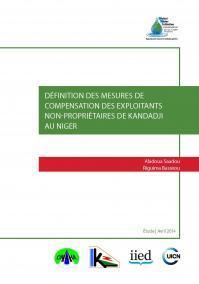Focal point
Location
Mission
Our mission is to build a fairer, more sustainable world, using evidence, action and influence in partnership with others.
Who we are
IIED is one of the world’s most influential international development and environment policy research organisations. Founded in 1971 by economist Barbara Ward, who forged the concept and cause of sustainable development, we work with partners on five continents. We build bridges between policy and practice, rich and poor communities, the government and private sector, and across diverse interest groups. We contribute to many international policy processes and frameworks, including the Intergovernmental Panel on Climate Change, the Millennium Ecosystem Assessment and the UN conventions on climate change and biological diversity.
What we do
IIED carries out research, advice and advocacy work. We carry out action research — generating robust evidence and know-how that is informed by a practical perspective acquired through hands-on research with grassroots partners — and we publish in journals and maintain high research standards. We advise government, business and development agencies, and we argue for changes in public policy. We focus on bottom-up solutions, stay open to flexible, adaptable solutions and are marked by a tradition of challenging conventional wisdom through original thinking.
Resources
Displaying 231 - 235 of 367Vers une sécurisation foncière du paysan dans la riziculture à grande échelle au Sahel
Communiqué final de l’atelier régional intitulé « Vers une sécurisation foncière du paysan dans la riziculture à grande échelle au Sahel ». L'atelier s’est tenu à Bamako, Mali, les 2 et 3 juin 2014.
Définition des mesures de compensation des exploitants non-propriétaires de Kandadji au Niger
La construction du barrage de Kandadji au Niger aura, entre autres, pour conséquences l’appropriation de terres de culture, propriété de détenteurs coutumiers mais dans beaucoup de cas sous-exploitations d’autres personnes non-propriétaires. L’État a proposé un bail emphytéotique d’une durée de 50 ans pour les propriétaires, en compensation de leurs droits de propriété expropriés.
Large-scale land deals in Ethiopia: Scale, trends, features and outcomes to date
Despite growing research on land deals in Ethiopia, there is still uncertainty on the real scale and features of the phenomenon, and some misperceptions continue to shape public debates. Report discusses the findings of a systematic inventory of land deals for agricultural investment in Ethiopia. It describes the scale, geography, drivers and key features of large-scale deals. It also discusses findings relating to the early outcomes of the deals.
Tracking Adaptation and Measuring Development (TAMD) in Mozambique
Mozambique is the 8th most vulnerable country to climate change and is one of the poorest countries in the world with a high dependency on foreign aid. The population is primarily rural and dependent on agriculture, with 60% living on the coastline. Droughts, flooding and cyclones affect particular regions of the country and these are projected to increase in frequency and severity.
Prioritising support for locally controlled forest enterprises
This book comprises detailed assessments of the likely impacts of small-enterprise support across different forest subsectors in eight countries. The work advances recommendations that are sometimes generic and sometimes linked to support for particular subsectors of locally controlled forest enterprises, including improving natural resource governance and tenure, as well as supporting investment in organization-building for forest and farm producer organisations.








